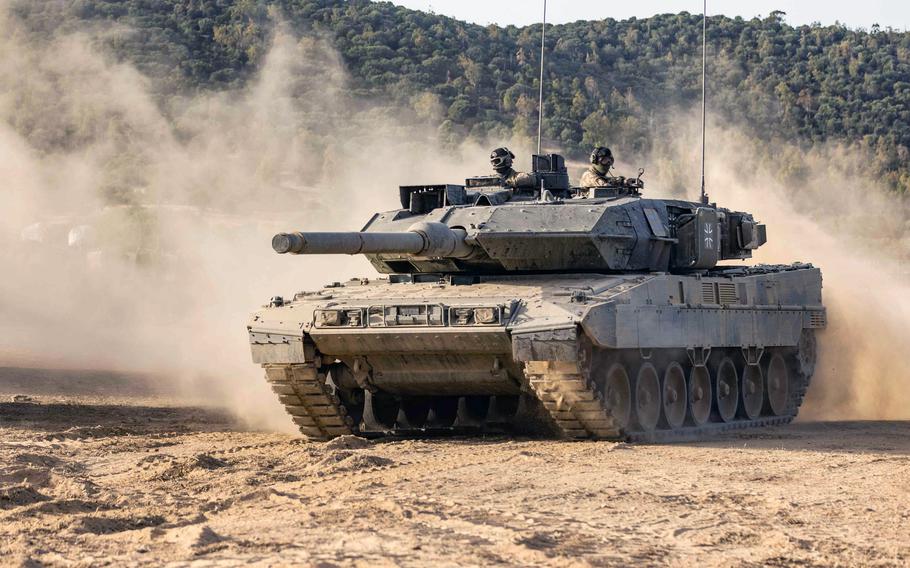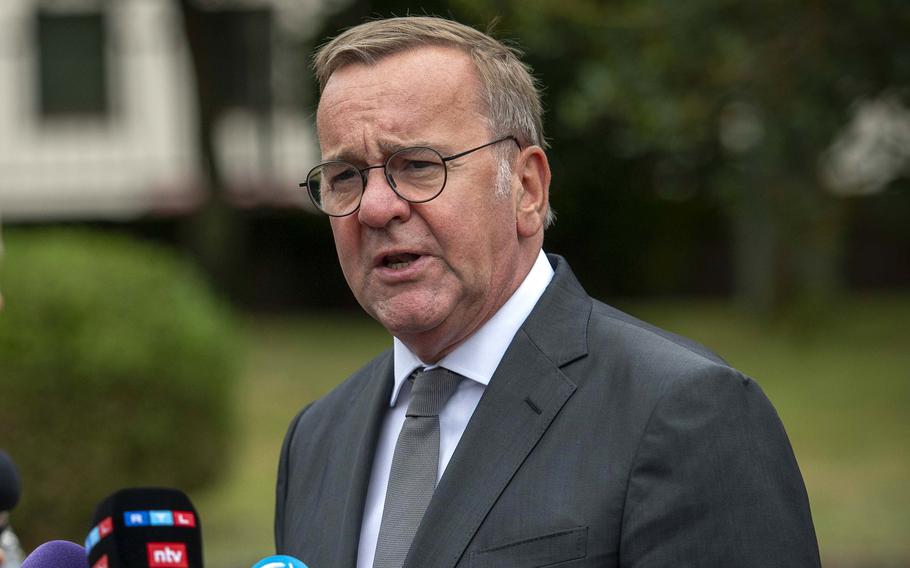
German soldiers fire a Heckler & Koch MG5/HK121 machine gun during a live fire exercise at Grafenwoehr Training Area, Germany, April 4, 2024. A majority of Germans support defense spending increases, according to a public opinion survey released Nov. 11, 2024. (Thomas Dixon/U.S. Army)
STUTTGART, Germany — A majority of Germans support significant defense spending increases, an outlook that coincides with the imminent return of Donald Trump to the White House and an anticipated pressure campaign on allied militaries to step up, a new public opinion survey found.
In September, German Defense Minister Boris Pistorius proposed pushing the amount of spending dedicated to the military from 2% of gross domestic product to between 3 and 3.5%.
In a new poll released Monday by the Koerber-Stiftung Institute, 50% of respondents supported Pistorius’ idea, while a further 15% said even more should be spent on German defense.
The bullish public sentiment on defense expenditures could come in handy for German politicians, who are likely to come under heavy scrutiny once Trump returns to office in January.

A German Leopard tank returns from the shooting range as a part of a 2023 NATO exercise in Italy. A majority of Germans support defense spending increases, according to a public opinion survey released Nov. 11, 2024. (Synne Nilsson/Norwegian army)
Still, 57% of Germans said they are unwilling to sacrifice social program spending for higher defense budgets.
The findings were part of a series of surveys commissioned by the Koerber-Stiftung Institute between September and October, well before the outcome of the Nov. 5 U.S. presidential election was known.
The poll didn’t address whether people favored tax hikes to resolve conflicting military and social priorities. Germany’s “debt brake” makes it difficult for the government to ramp up deficit spending.
Germany faced tough criticism from Trump during his first term over its failure to meet NATO’s defense spending benchmark of 2% of GDP. This year, for the first time in decades, Berlin hit that target.
But the boost in the amount is unlikely to be regarded as sufficient by the incoming administration.
In the past, Trump frequently said the 2% mark is too low. And some allies, such as Poland, have called for a higher NATO spending standard to ramp up defense capabilities.

German Defense Minister Boris Pistorius gives remarks during a Ukraine Defense Contact Group meetings at Ramstein Air Base, Germany, Sept. 6, 2024. That month, Pistorius proposed pushing the amount of German spending dedicated to the military from 2% of gross domestic product to between 3 and 3.5%. A majority of Germans support defense spending increases, according to a public opinion survey released Nov. 11, 2024. (Stars and Stripes)
Germany’s appetite for spending more on defense doesn’t mean that citizens are eager for their country to play a leading military role in NATO, however.
A majority of Germans polled, 65%, opposed a military leadership role for Germany in Europe, the survey said. There has been persistent opposition to a major domestic military presence in German life, likely tracing back to the country’s responsibility for World War II.
The survey also looked at German and American support for Ukraine in its war against Russia. A majority of Germans, 57%, still favor providing military assistance to Kyiv, in contrast to the U.S., where the number now stands at just 41%. The American figures in the survey were gathered by the Pew Research Center.
In both countries, support for Israel in its war against Hamas was even lower, with only 25% of Germans and 30% of Americans saying their country should provide military aid to Israel, according to the survey.